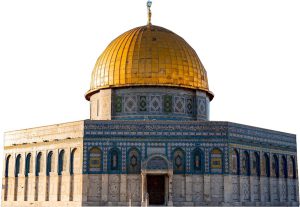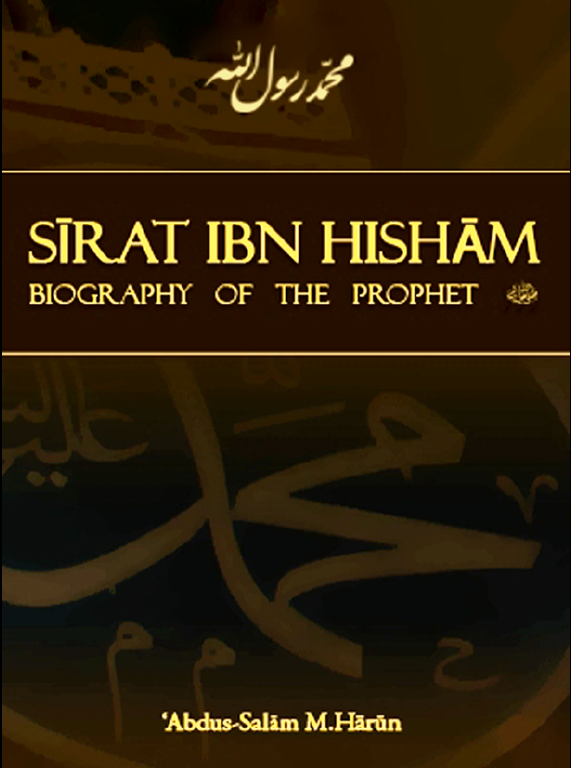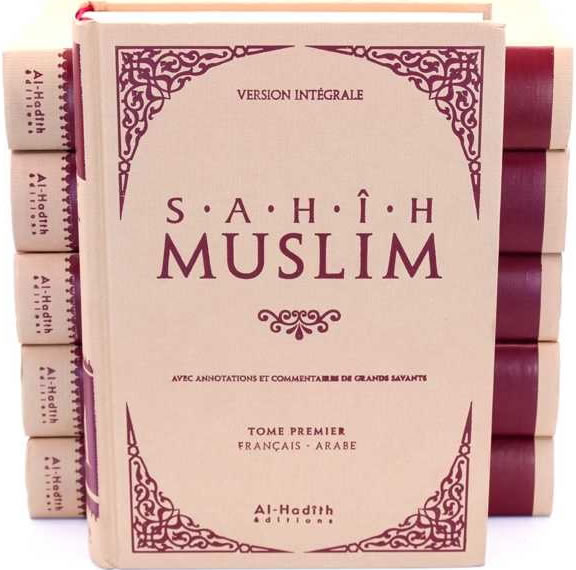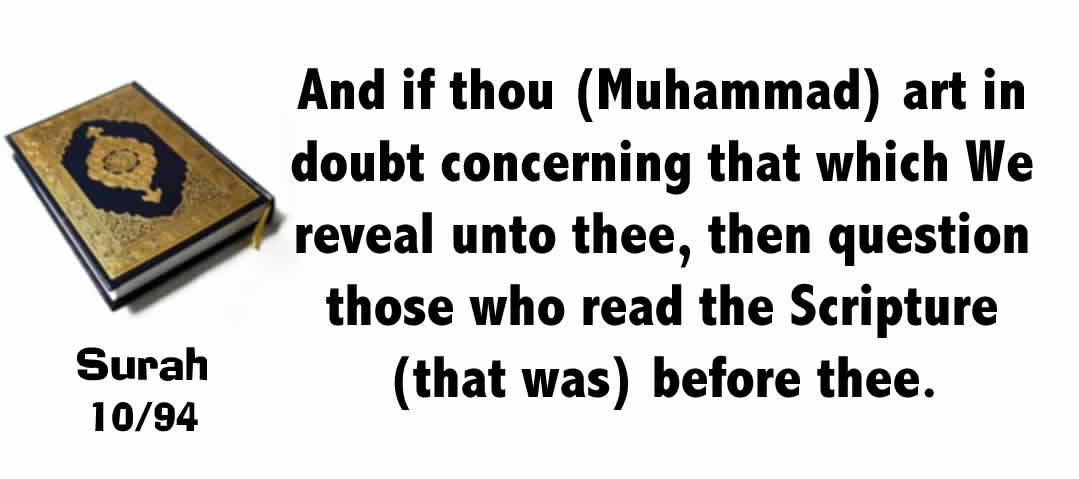Islam > To know Islam and his prophet.
This post is also available in :
![]()

We would first of all like to make point. All religions of the world as well as their founder and their holy books are in public domain.
Islam and his prophet doest not belong only to Muslims. Islam is a religion which is followed by almost the half of the inhabitants of the world. Everybody is free to bring in any objectivity his opinion on the subject without falling into denigration.
We will only be dealing here with Islam as an ideology and not about the Muslims. The only Muslim to whom we will refer to is Muhammad, himself being the original source of Islamic doctrine and all consequences which occurs from it. What will be developing here are only facts while leaving the reader, to draw his own conclusions.
It is important for us to remind our readers may they be Muslim or not that we are not in a denigration process against Islam and its prophet, on the contrary. As its appears on the page header, we are in a logic of the knowledge of Islam and of its prophet. To us, I-S-L-A-M stands for « I Shall Love All Muslims » It is this out of love towards the Muslims that we endeavour to try to understand this religion by scanning not only its teachings — as they appears in their authorized books — but also the life of his prophet. It is usually says, « Tell me with whom you walk, and I will tell you who you are. » In the same logic, we can say « Tell me who you follow, and I will tell you where you are going. »
Most of non Muslims think that the Qur’ân is « Islamic Bible ». Unfortunately, this perception is completely wrong. It is necessary to note that both the scholars and the politicians do not always understand what is written in the Qur’ân. To understand the Islamic ideology, it is necessary to read 3 books : the Sirat (also known as  Sirat Rassul-AllahSirat Rassul-Allah
= the “official Biography of the prophet of d’Allah“), the Qur’ân and the Hadiths (The Sahih Al-Bukhary
, the Sahih Muslim, just to name these two). the Sirat
and the Hadiths
constitute the Islamic tradition (also called the “Sunnah“). All these 3 books construct the “Islamic Trilogy“. The “Sharia” is the Islamic law extracted from this Trilogy and is the practical implementation of Islamic doctrine and ideology found in the Qur’ân, the Sirat
and the Hadiths
.
Sirat Rassul-AllahSirat Rassul-Allah
= the “official Biography of the prophet of d’Allah“), the Qur’ân and the Hadiths (The Sahih Al-Bukhary
, the Sahih Muslim, just to name these two). the Sirat
and the Hadiths
constitute the Islamic tradition (also called the “Sunnah“). All these 3 books construct the “Islamic Trilogy“. The “Sharia” is the Islamic law extracted from this Trilogy and is the practical implementation of Islamic doctrine and ideology found in the Qur’ân, the Sirat
and the Hadiths
.
The prophet of Islam
during the last instants of his life declared: “Understand my words, O men
, for I have told you. . I have left with you something which if you will hold fast to it you will never fall into error. A plain indication, the book of God
and and the practice of His prophet
, so give good heed to what I say.” Cf. Sirat, 969, page 651 ( Sirat Rassul-AllahSirat Rassul-Allah
, Ibn Hichâm).
Sirat Rassul-AllahSirat Rassul-Allah
, Ibn Hichâm).
Let us notice that by speaking of the Qur’ân and the Sunna, the prophet of Islam does not speak about then as being two distinct books. He does not say I have left with you two things but something.
It is unquestionably because of this that the imam Muslim declares that: “Islam has given two reliable pathways for the guidance of mankind. One of them is the clear Verses of Qur’ân while the other, quite consistent with the first, is what we call Sunnah or Hadith. To explain and interpret its basic and brief teachings, Qur’ân has itself mentioned the need for Sunnah and the Prophet’s model lifestyle. The latter explains the former. The Sunnah is an indispensable guide to understand the commandments and passages of Qur’ân. Without A1zâditj, the entire faith and the entire Siiari’ah (Islamic Law) will become no better than a riddle.” Cf.  Collection of the authentic hadiths of imam Muslim.Sahih Muslim
, Volume 1, Page 15 (Publisher’s Foreword)
Collection of the authentic hadiths of imam Muslim.Sahih Muslim
, Volume 1, Page 15 (Publisher’s Foreword)
There are two things to be considered in this speech from Imam Muslim.
1°- Contrary to the Qur’ân, the Sunnah is not compiled in an unique book. One should however keep in mind that any Islamic document is not the Sunnah or is not part of the Sunnah. There are collections of the Sunnah which are classified as being Sahih (authentic, correct, sound), some collection which are called Hasan (good) and some which had unacceptable content, and are classified as being Daif (weak).
The authentic (Sahih) collections are those authoritative in the Sunni branch of Islam.
2°- Until the Sunnah from imam Muslim (as well as many others) be translated into English or French, it was only accessible to the arabs.
From these two points, we can undoubtedly conclude that that, Muslims don’t own the Sunnah and as a matter of fact, they do not know much (or just a little) about Islam so they follow the religion relying on what is said to them by their imams, sheikhs and ulema in the mosques. The Muslims are not even authorized to question the Qur’ân as it could be read in the Surah 5v101
. By this only verse of the Qur’ân, we understand that a Muslim cannot dare to study of the Islamic sacred scriptures, for to study goes together with questioning. Besides, in the Qur’ân, Allah tells Muhammad and therefore to all Muslims after him, in case they would have any doubt on what he sent down on him (the Qur’ân), to question those who read the Book revealed before him. We read it in  Surah 10v94Surah 10v94
.
Surah 10v94Surah 10v94
.

Who are those who read the Book revealed before Muhammad and which is this book? The book revealed before the Qur’ân is the New Testament and those who read it are no others than the followers of Jesus Christ also called Christians. It therefore to the Christians to explain their religion to the Muslims and it is what we intend to do in this part of our website dedicated to the knowledge of Islam and its prophet.
Of the various branch of Islam, the one we will cling on is the most representing on the surface of the Earth that is Sunni Islam . Every Sunni Muslim who refers only to the Qur’ân and refutes the Sunnah of the prophet Muhammad is just a mere unbeliever, because the most part of the practices of Islam have their origins in the Sunnah and not in the Qur’ân.
In this section of our website dedicated to Islam, we will be going deep to the roots of Islam to screen the basis of Islamic religion, introducing and defining the fundamental notions of Islam namely: the Qur’ân, the Sunnah, the hadiths, the  Sirat Rassul-AllahSirat Rassul-Allah
.
Sirat Rassul-AllahSirat Rassul-Allah
.
We will especially deal with:
- The religious environment of Mecca before Muhammad;
- The birth of Muhammad, the prophet of Islam;
- The idolatrous worship of the ancestors of Muhammad and its participation in it;
- The beginning of revelation;
- Idolatrous practices of Meccas transposed into Islam;
- The Islamic dogma;
- After all this, we will answer to the question to know if Mohammed was or is indeed a genuine prophet of God.
Having lay this foundation on Islam, we will be publishing blog post on other topics related to Islamic theology namely:
- The Islamic theology on salvation after death;
- The Islamic theology on Hell;
- The Islamic theology on the birth of Jesus;
- The Islamic theology on paradise;
- The Islamic eschatology;
- Etc.
We will try a psychoanalytic analysis of Muhammad, the prophet of Islam. We will undertake a comparative study on the life of Muhammad and that of Jesus Christ, notably their birth, how they lived, how they died. On their teachings, their relations with their contemporaries to know which of these two characters is worthy of being followed; all this in the only purpose, not only to demystify Islam and his prophet, to explain Islam and his prophet to those who follow this religion, and to introduce it to the followers of Jesus who received the mandate to go and to make disciples in all nations.
All Muslims belong to the « Umma », the Nation of Islam. Every Muslim is considered first of all as part of « Umma » and not as Arab, Syrian, Iranian or American. In other words: The politics of the Islamic leaders is all liked to Islam. In fact, they are entirely based on Muhammad and the Islamic Trilogy (the Qur’ân, the Sîrat , the Hadiths ). Keep in mind what follows: to think otherwise to stipulations formulated in the Islamic Trilogy is considered as a betrayal in Islam and liable to Death! No Muslim will therefore dare to speak openly against Islam and non-Muslims who dare to do it will surely undergo violent retaliation.
By going through these pages dedicated to Islam, you will see that the Qur’ân, the Sîrat and the Hadiths are considered as Law in Islamic states. You quickly take in count that Islam is an affair which concerns not only the Muslims, but you also. You therefore have interest in understanding what it is all about.
The truth is not to be defend and the truth is not afraid of contradiction.
